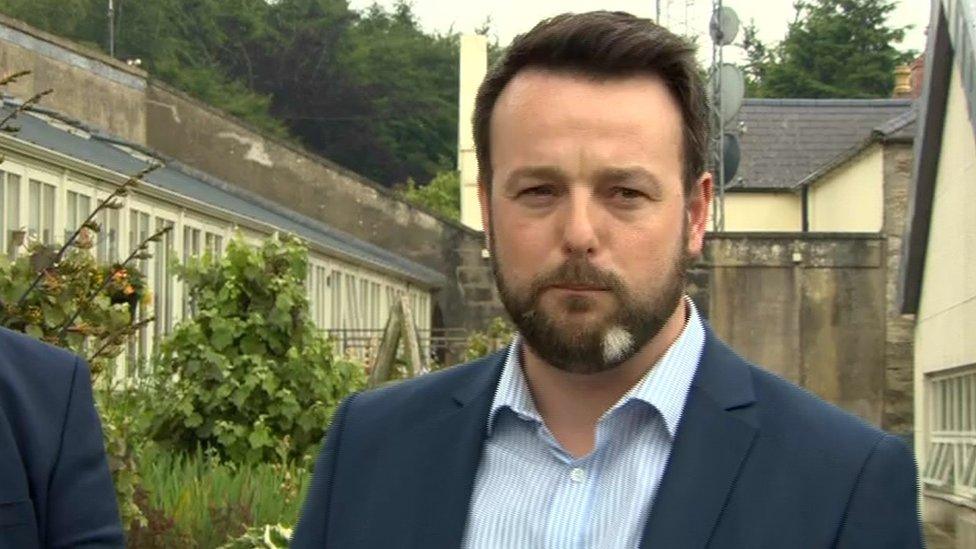SDLP leader wants New Ireland Forum re-established
- Published
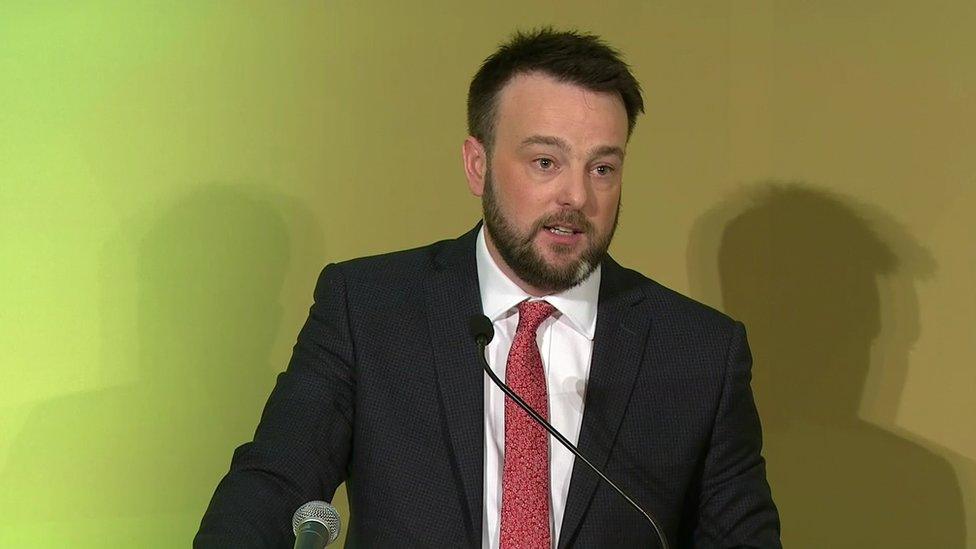
Colum Eastwood said no border poll should be called until the forum's work is done
The SDLP leader has called for the re-establishment of the New Ireland Forum, suggesting nationalists and unionists could shape the future of the island.
Colum Eastwood told his annual party conference that no referendum on Irish unity should be called until the work of the forum is complete.
The original New Ireland Forum was a cross-border body set up by the Irish government in 1983 to gather a range of views on how to end the Troubles.
Its members were Irish nationalists.
'Crossed the Rubicon'
But in calling for a new forum, Mr Eastwood told his party colleagues: "We all have a duty to tell our unionist neighbours - 'You belong to this place every bit as much as I do - therefore you have the very same right to shape the future of this island'.
"They also need to hear that while we want to shape the change ahead, we want to make Northern Ireland work right now."
He then appealed to directly to unionists: "Try to convince us of your vision for the future and we'll try to convince you of ours - and then in time let the people decide."
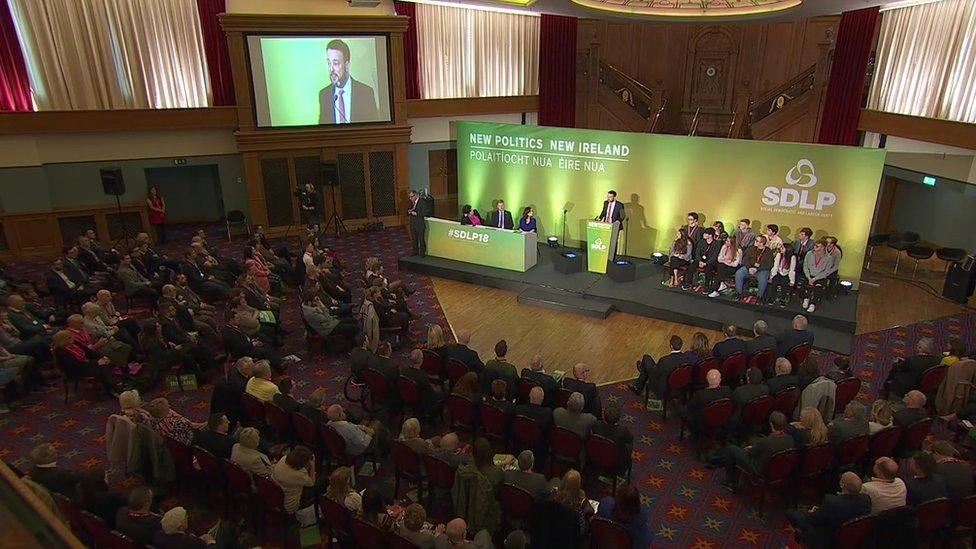
The SDLP held its annual conference in east Belfast on Saturday
Saturday's conference was held in Belfast's Titanic building, in east Belfast.
The SDLP leader said: "I am all too aware that talk of a New Ireland risks sending some in this community to the hills - and I am very sensitive to that fact."
But he added: "There are many within the unionist community who are willing to engage and who are willing to explore new possibilities."
Mr Eastwood used the example of the late DUP leader Ian Paisley, who entered government with Sinn Féin in 2007.
"I always think that one of the most remarkable moments in our modern politics came just before Dr Ian Paisley finally crossed the Rubicon and embraced power-sharing", the SDLP leader said.
In his speech, Mr Eastwood spoke about an "all-Ireland health service, free at the point of delivery" and an island that "gives power and place to all its rich traditions".
He added: "No one party can shape that New Ireland and all of us must have an investment in it.
"The New Ireland Forum is the best way to produce that blueprint and that plan - no referendum should be called until that work is done."
Ahead of the conference, the SDLP leader was questioned about speculation of possible merger with Fianna Fáil, the Republic of Ireland's biggest opposition party.
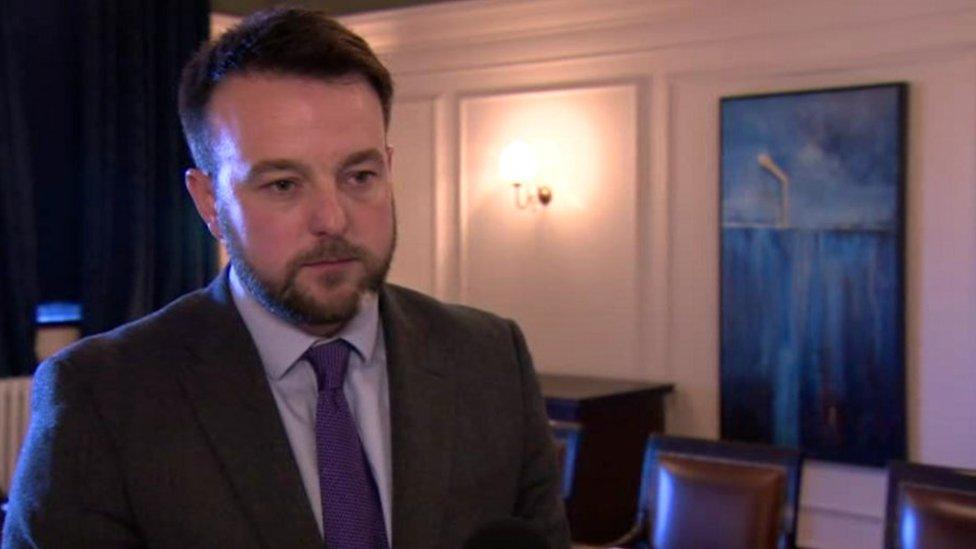
Colum Eastwood said he was prioritising the problems people face "right now"
Mr Eastwood replied that speculation had been around for 15 or 20 years and his immediate focus was on Brexit and the restoration of devolution
"There's always a conversation about what comes next in Irish politics," he told BBC News NI.
"I'm happy to talk about that stuff, but what I'm most focused on is what we're doing with the country - how we're meeting the challenges of Brexit; how we're meeting the challenges of our institutions not being there and how we're going to get back to the Good Friday Agreement.
"Any future talk about how we re-order politics in the long term - that's for another day. Today is about dealing with the problems that face our people right now."

From the conference: BBC NI political correspondent Stephen Walker
By holding their conference in the Titanic building in Belfast, the SDLP knew they were offering political commentators and cartoonists an easy hit, for a party in need of a re-launch.
The SDLP is in troubled waters - bereft of MPs and in the shadow of Sinn Féin.
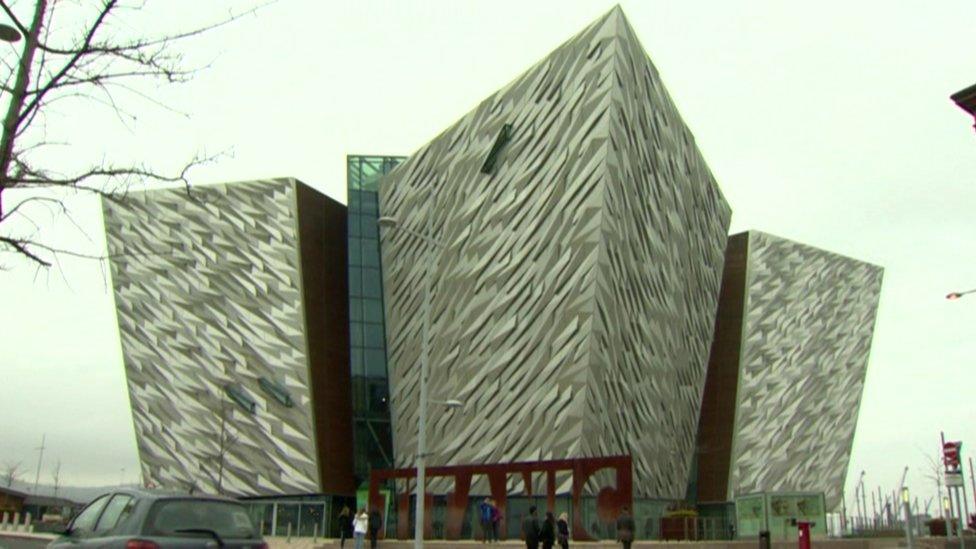
Colm Eastwood told the Titanic audience the Good Friday Agreement was "grand when it left us"
There was no formal discussion today about the party's future, but behind the scenes talks are taking place about the possibility of a formal link between the SDLP and Fianna Fáil.
If a merger was proposed, it was clear from some conference delegates that there would be internal opposition.
Former SDLP minister Bríd Rodgers told BBC News NI she was against a merger, while current MLA Patsy McGlone said he supported the idea as "an ultimate conclusion of our historical development".

On Friday night, the SDLP hosted a dinner to mark the 20th Anniversary of the Good Friday Agreement - the 1998 peace accord that helped to bring an end to the Troubles in Northern Ireland.
The anniversary celebrations have been marred by a long-running dispute between Stormont's two biggest parties - the Democratic Unionist Party (DUP) and Sinn Féin, which led to the collapse of their power-sharing coalition in January 2017.
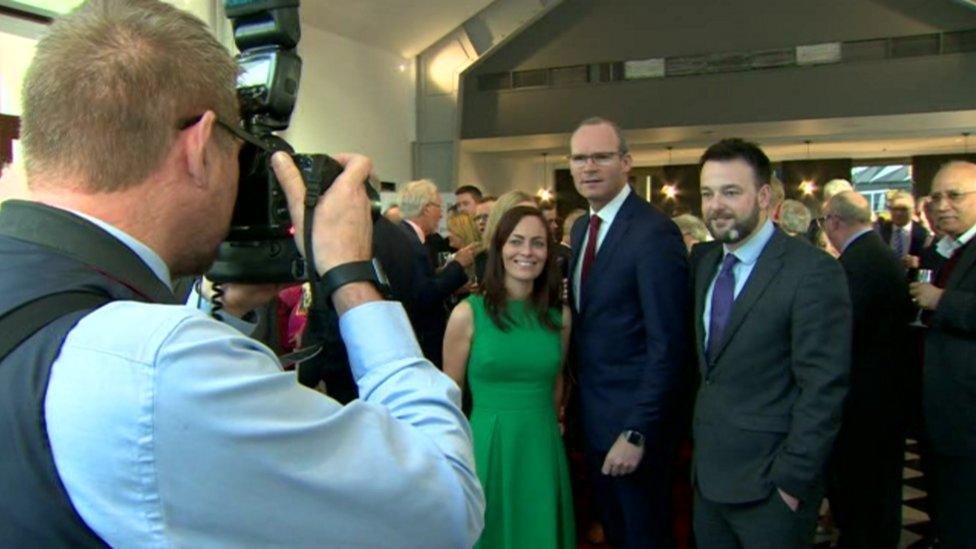
The SDLP leadership was pictured with Irish Foreign Minister Simon Coveney at the dinner
Earlier this year, the SDLP leader was very critical of the most recent round of talks aimed at resolving the stand-off, which ended in failure on St Valentine's Day.
He claimed the talks were an "exclusive two-party process" and said the SDLP was "not here to window dress" the negotiations.
Mr Eastwood, 34, was elected leader of the Social Democratic and Labour Party (SDLP) in November 2015.
At the time, he was the party's youngest member in the Northern Ireland Assembly.
His tenure has been difficult at times - in last year's general election the SDLP lost all of its MPs.
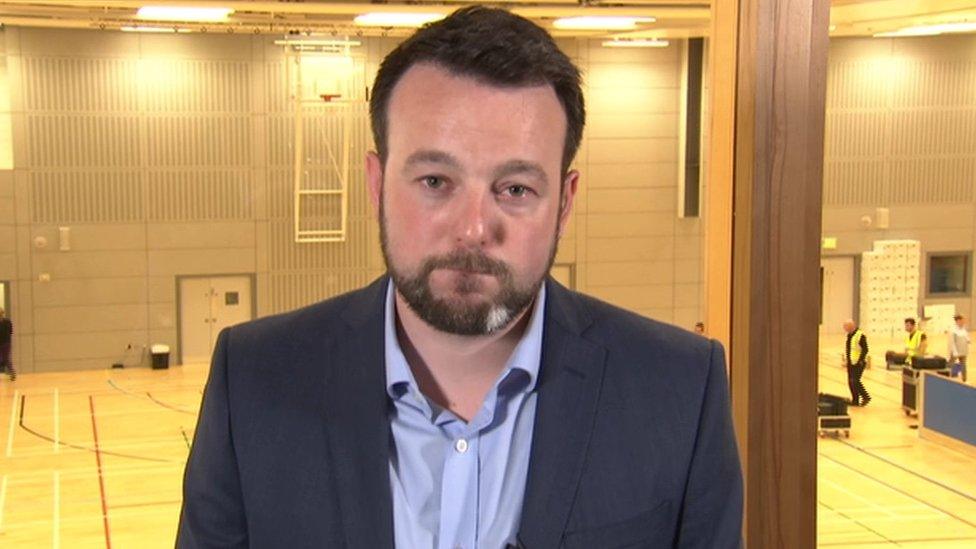
Mr Eastwood looked emotional during a BBC interview on the night of the general election results
Three former SDLP leaders - Mark Durkan, Margaret Ritchie and Alasdair McDonnell - lost their Westminster seats in the snap poll.
Shortly after the result, Mr Eastwood revealed that he had considered quitting as leader , but decided to stay on after receiving messages of support from inside and outside the party.
'Fight for peace'
During the 20th anniversary dinner on Friday night, the SDLP introduced a new award - the John Hume medal - named in honour of its former leader.
Mr Hume's wife, Pat, presented the medals to former Taoiseach (Irish Prime Minister) Bertie Ahern, former Northern Ireland Secretary Paul Murphy and former SDLP leader Mark Durkan.
In a party statement, Mrs Hume said: "They are worthy recipients and their invaluable contributions to peace on this island cannot be overstated.
"In this period of political uncertainty, it is important to remember and embrace the principles of the Good Friday Agreement.
"Tonight's celebrations were also a stark reminder of how hard we have fought, and must continue to fight, for peace."
- Published30 March 2018
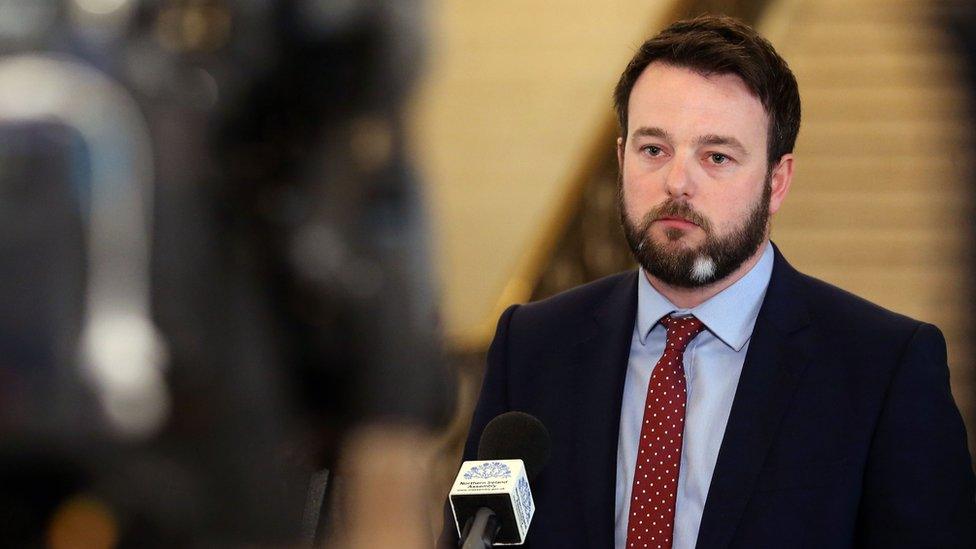
- Published23 June 2017
